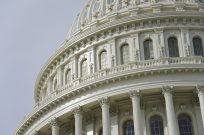The Legitimacy of Trump's Victory and the Limits of Democracy
Some already seek to delegitimize Donald Trump’s decisive victory in the Electoral College, on the grounds of his failure to win the popular vote. But in the close elections where the results of the Electoral College and the popular vote diverge, the popular vote result has no electoral significance because the candidates did not try to win the popular vote. If they had tried to get the highest popular vote, they would have campaigned entirely differently. Donald Trump would have campaigned more in Texas to increase his vote and Hillary Clinton would have campaigned more in California. They would have run their television advertisements in different places. And perhaps fewer citizens would have voted, because many more would have thought their vote was unlikely to change the large national count.
Given the less than 200,000-vote margin separating the candidates, we cannot be certain who would have won the popular vote had the candidates been aiming for a popular majority. As I said in a similar discussion of Bush v. Gore, “paying attention to the popular vote this context is like suggesting we should pay attention to the total number of runs a team got in the World Series rather than the number of games won.”
A second myth to delegitimize the Electoral College and thereby Trump is to claim that the Electoral College advantages the small states. But it is not the small states but the largest states that gain most advantage as the rule actually operates. It is true that the Electoral College gives two votes to each state, regardless of population, and that constitutional decision does advantage the small states. But because all states except two have decided to use winner-take-all systems for awarding their votes, it is actually large states that are advantaged. The reason is that large states are much more likely to be decisive in the electoral college. Thus, as a matter of fact, the Electoral College actually tempers the overall small-state advantage that is provided by equal representation in the Senate.
More generally, we should remember that in close elections, there is no transcendental winner. If the election had been held a week ago, Clinton may well have won. If held a week later, perhaps Trump would have won by more. Weather patterns can change turnout and affect results. Democracy is thus an imprecise instrument. It can guarantee that we do not have a President with only a small base of support, but, as a fuzzy snapshot taken at a particular time, it cannot pick out the person with majority or even plurality approval of any duration.
This understanding of elections further confirms that we cannot depend entirely on representative democracy at the national level for our welfare. Entrenched rights—property rights and civil rights alike—are also essential, as are the checks and balances of federalism and the separation of powers. Democracy provides a complement to classical liberalism. It is no substitute.

